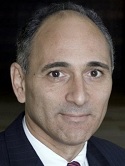The world's top sellers of the world's top biologic meds haven't changed much in the last few years. Ranked by 2014 sales, it's your usual suspects--Roche ($RHHBY), Amgen ($AMGN), Novo Nordisk ($NVO), AbbVie ($ABBV). But as PMLiVE notes in its annual ranking, times are a-changing.
We may be looking at the same crew next time around--Roche certainly will keep its pole position. The Swiss drugmaker boasts three of the world's best-selling cancer drugs, which helped it hit $30 billion in biologic sales last year. Amgen, in second place, amounted to $17 billion, and its portfolio stands to grow this year, with a hot, cholesterol-fighting PCSK9 property offsetting any declines elsewhere.
Novo Nordisk may be more vulnerable, with its $14.2. billion in biologic sales edging out AbbVie at $13.89 billion. But Novo's diabetes-fighters are well entrenched, with new competition from Eli Lilly ($LLY) and Sanofi ($SNY) promising to grow the category as much as steal market share. Then again, AbbVie's Humira is the world's top seller, period--and it racked up some big sales gains in the first quarter of 2015.
Sanofi's megablockbuster Lantus, meanwhile, may weaken later this year, but new diabetes launches could keep its overall biologics sales in the same neighborhood for 2015. It trailed AbbVie even more closely than AbbVie did Novo, at $13.87 billion in sales.
By as early as 2016, however, biosimilars could be shuffling the ranks, if only slightly. In March, the U.S. got its first biosimilar approval in Zarxio, the copycat version of Amgen's Neupogen fielded by Novartis' ($NVS) Sandoz unit. Tied up in court as legal minds sort out the biosimilar path-to-market rules, the med could still hit in 2015. Any real sales impact wouldn't begin till next year.
Meanwhile, overseas erosion is happening for some meds as U.S. biosims edge closer to market. Already approved in Europe--and discounted by surprising rates in some countries--Remicade copycats are threatening that stalwart brand on the continent. U.S. versions are expected in 2016, discounts as yet unknown. That puts sales for the Johnson & Johnson ($JNJ) and Merck ($MRK) med in jeopardy--and their spots in the ranking as well.
Sanofi's Lantus is set for biosimilar competition from Eli Lilly and Boehringer Ingelheim in Europe midyear 2015, with a U.S. launch expected as soon as a patent fight winds down, probably in 2016. And then there's Humira, which has a biosimilar rival in India now, and faces patent loss in the U.S. next year. At least one analyst sees a major hit to that franchise by 2018, as biosimilars take hold.
Of course, no one really knows yet how quickly biosimilars might gain traction in the U.S. Uptake in Europe hasn't been all that impressive, but new discounts could change that. And U.S. payers, newly aggressive on drug costs, are counting on biosims to make a big difference--with some expecting biosim prices to come in at discounts of up to 50% to the brand.
 |
| Novartis CEO Joe Jimenez |
Still, even Novartis--which has big biosim ambitions--doesn't see much immediate impact. CEO Joe Jimenez has said the shakeup won't come in the first couple of years. But by 2020, he figures, the biologics market will be an entirely different beast. So the usual suspects on this list could have slid down several pegs by then, with biosim upstarts going the opposite direction.
- see the PMLiVE article
- get the GlobalData numbers
Special Reports: Top 10 best-selling drugs of 2013 - Humira - Remicade - Lantus | Top 10 patent losses of 2015 - Neulasta